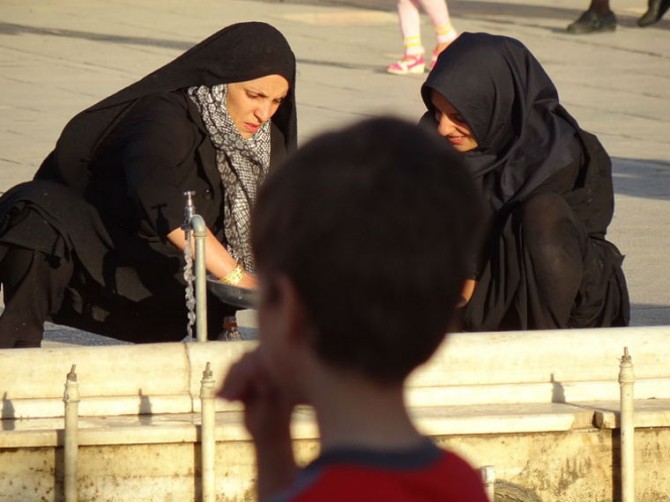A Separation may not portray famous personages, nor have massive special effects, but it is compelling all the same. It deals with big ideas and the struggles of modern life, which are not that different in Iran as opposed America or anywhere else. Well-off Simin (Leila Hatami) wants a divorce from Nader (Peyman Moaadi) because she wishes to raise Termeh, their daughter, abroad. This being Iran, Simin cannot travel without her husband, who prefers to remain in the country to care for his father, who has dementia. We already have a family drama. Nader hires a working-class, religious woman named Razieh to care for his father while he is at work. Razieh is pregnant, and has not told her unemployed, mentally unstable husband that she has taken this job. Sacrifices are made, corners are cut, and Nader is eventually brought up on charges of murder for the death of Razieh's fetus, while Razieh is charged with theft. A courtroom drama is added along with class struggle. The men insist on their rights as wronged parties. The women try to work it out. Both parents ask Termeh to make decisions no child should have to make.
One of the things I found fascinating (besides the parallels to care giving issues in the United States) was the way A Separation is photographed. Many shots are through windows or doorways, as if the audience is a nosy neighbor. On the one hand, the film seems to be saying that the goings-on are private and none of our business (let alone that of the government), but on the other, the very existence of the film is an insistence that the issues need to be fully aired. While some may be daunted by subtitles, I say put your reservations aside and be prepared to be sucked in.
More media you might like:
The Past. An By the same director, an Iranian man abandons his family in France to go back to his home country, and is served with divorce papers.
Persepolis. The animated film version of Persepolis and Persepolis 2, two graphic novels about growing up female in revolutionary Iran.



Add a comment to: The Sandwich Generation in Iran